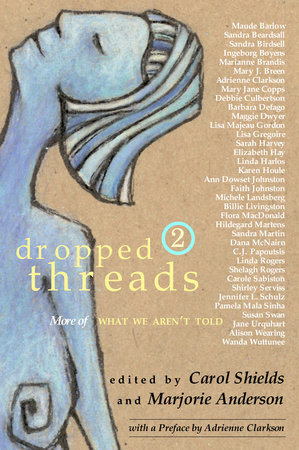Dropped Threads 2 Reader’s Guide
By Carol Shields Marjorie Anderson


1) Is there a balance between joy and sadness in Dropped Threads 2?
2) The following is a quotation from Carol Shields’ novel Unless: "Unless you’re lucky, unless you’re healthy, fertile, unless you’re loved and fed, unless you’re offered what others are offered, you go down in the darkness, down to despair." Do the stories in Dropped Threads 2 confirm or contradict this statement?
3) Can you compare and contrast two stories from the collection on similar themes?
4) Carol Shields has often spoken of redeeming the lives of ordinary people by recording them in her works; "especially that group of women who came between the two great women’s movements." Can you compare the experiences of women who grew up in the fifties or before, and those of women who grew up later?
5) Dropped Threads 2 endeavours to look beyond the experiences of middle-class women to a broad cross-section of women with fewer privileges or less freedom in other cultures. What do you think this adds to the collection?
6) Ann Dowsett Johnston in "The Boy Can’t Sleep" says she would like to pass on advice to her son about "the mating dance of men and women." What would you tell him?
7) How does this volume compare with the first book? While it is on the same theme, there are some differences. What stands out for you, the reader?
8) What does Adrienne Clarkson’s Foreword add to the book? What is her main message to women readers?
9) Do the four divisions help "organize" the book for readers? Can you see how the stories fit under the individual banners of End Notes, Variations, Glimpses, and Nourishment?
10) What are some aspects of the surprises and silences in women’s lives that haven’t been touched on in either volume of Dropped Threads? What topic would you suggest in reply to the question, "What do women generally not talk about or pass on to others"?
Just for joining you’ll get personalized recommendations on your dashboard daily and features only for members.
Find Out More Join Now Sign In